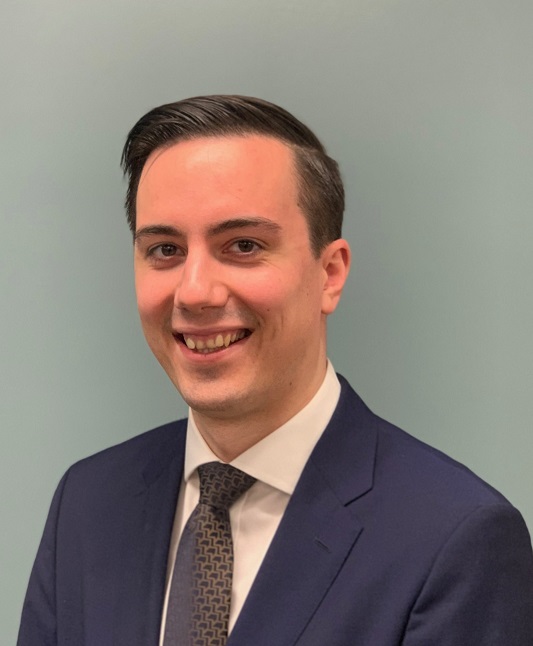Issue One is a Washington, D.C. based nonprofit self-described as an “honest broker on Capitol Hill.” The organization seeks to bring Republicans and Democrats together to secure elections from interference, end gerrymandering, and reform campaign finance laws. One of their initiatives is encouraging faith communities to bring their voices and energy into the work of these political reforms. They hope this initiative will raise the federal government’s efficacy and the American public’s trust in its work.
To this end, Issue One hosted the “People of Faith: Engage 2020” webinar on August 18. The purpose of the webinar was to discuss the intersection of faith and politics, and the role of Christians in the political sphere during such a divisive time in America. The event featured Christian musician Michael W. Smith, longtime Southern Baptist leader Dr. Richard Land, and President Obama’s evangelical outreach leader Michael Wear. Also participating were Justin Giboney, co-founder of the AND Campaign, and Kaitlyn Schiess, a young author and theologian. The summit was moderated by former U.S. Representative from Tennessee, Zach Wamp, as well as Weston Wamp, Issue One’s Senior Political Strategist.
Rep. Wamp began the discussion by asking what the role of a person of faith in the public arena is, particularly in a time like this when politics has become ugly.
Land, now in his seventies, focused his answer on the need for Christians to display the love of Christ to those that hate them, their political enemies, so to speak. The former Southern Baptist pastor argued that the Civil Rights movement was one of the most successful movements in American history because Dr. Martin Luther King preached love. He admitted that he himself had great difficulty loving racists as a young man in the 60s. “Only the light of the gospel can change beliefs,” he argued. He said that was the most effective tool in making lasting change in one’s community.
Giboney argued two reasons why Christians should participate in politics: to defend human dignity and to promote human flourishing. The AND Campaign co-founder was recently interviewed by Mark Tooley regarding the book he wrote with Michael Wear. Giboney says in this country there is a false dichotomy between pursuing justice and order, which people split as goals of the political left and right, respectively. He says that this split doesn’t exist in the Bible.
Giboney believes in this moment Christians in America need “moral imagination” and have to “see past the moment,” the chaos before their eyes, and strive for policy that truly honors God.
Michael Wear, who co-wrote Compassion & Conviction with Giboney, shared that Christians often say to him that politics is so dirty and messy that they do not want to be involved in what is happening in D.C. or state capitals. Wear’s response is that as Christians and American citizens, they already have a stake and a responsibility. These cannot be shaken off or avoided. Instead, you can only choose the role you play. Contrary to what so often happens, an ultimate sense of community is not what people of faith should find in politics. That should come from being a follower of Christ. And because of following Christ, they should be civically engaged, out of love for their neighbors.
Kaitlyn Schiess expanded on the idea that while Christians should care about politics, following Christ should come first. She said that believers “have quite powerful opportunities” to help neighbors through political engagement, including voting. But particularly when considering presidential candidates, they should ask the question: “What kind of savior is being presented to me as an alternative to Christ?” By making one’s life more informed by the Church than outside sources, you can help yourself vote for a politician while not making him your savior. Schiess discusses politics and spiritual formation in her upcoming book, The Liturgy of Politics.
The young theologian later shared her observation that her generation, millennials, is attuned to what seems fake or hypocritical, especially hypocrisy alongside power-seeking. She finds other young people around her are also sick of their presidential vote being frame by others as a deep and sweeping source of identity. As a result, conversations around politics and their vote become overwhelming, and exhausting, which only serves to hamper civic engagement.
To combat this problem, Schiess tries to show her peers how important local votes are, such as those for sheriff or judges. She also invites them to come with her to serve in the local community and see the needs of those in the next neighborhood over.
Former Representative Wamp then praised Michael W. Smith, both a personal friend and chart-topping Christian musician, for stepping out politically a number of times throughout the years. Wamp asked Smith to discuss his motivations for putting himself out there and making his views known.
Smith said it is not an easy choice for him to step out politically. He has fans situated all across the political spectrum, and he wants to be able to speak to both sides of the aisle. Because of the nature of American politics, Smith knows that any political statement always comes with risk of upsetting some of his fans. But politics matter to him because it connects to caring for his family and friends. And so sometimes something in his gut, some personal conviction, pushes him to be a voice for a policy or politician that he is confident will do good for his family, his community, and future generations.
Revisit Juicy Ecumenism for the second and final report on this important discussion, coming soon. The panelists discuss abstaining from voting come November, Christian role models in the public square, the responsibility to call out falsehoods, and more.
No comments yet





